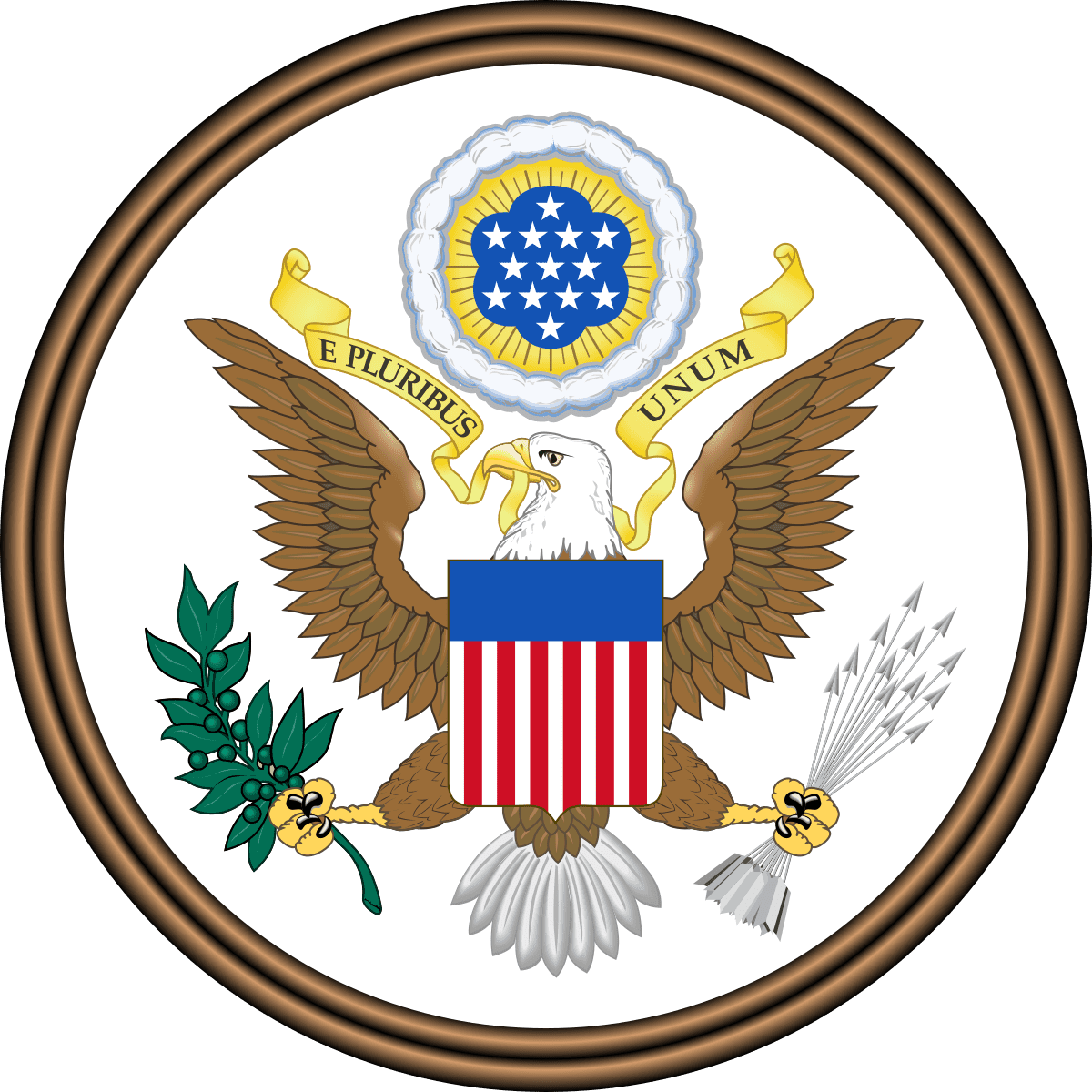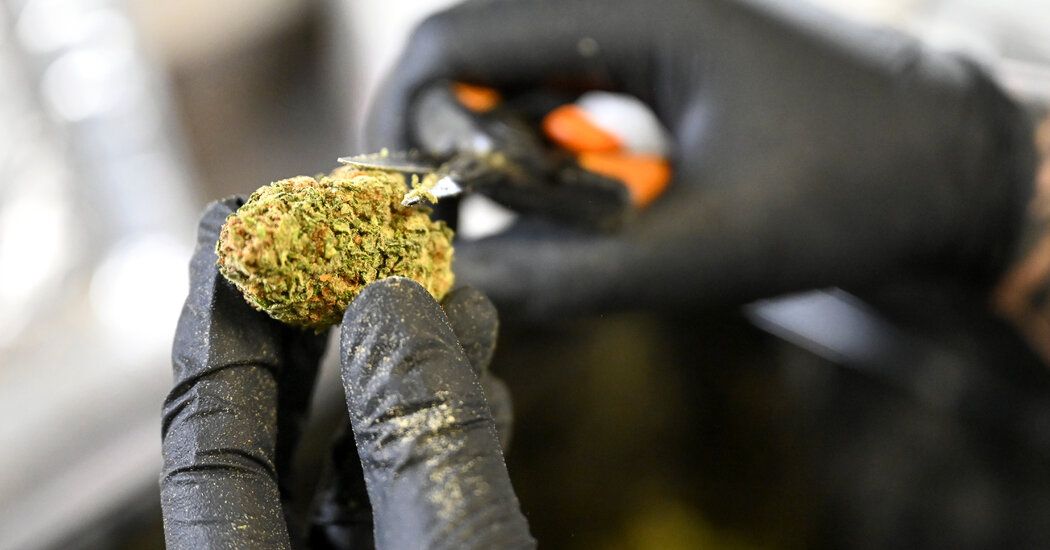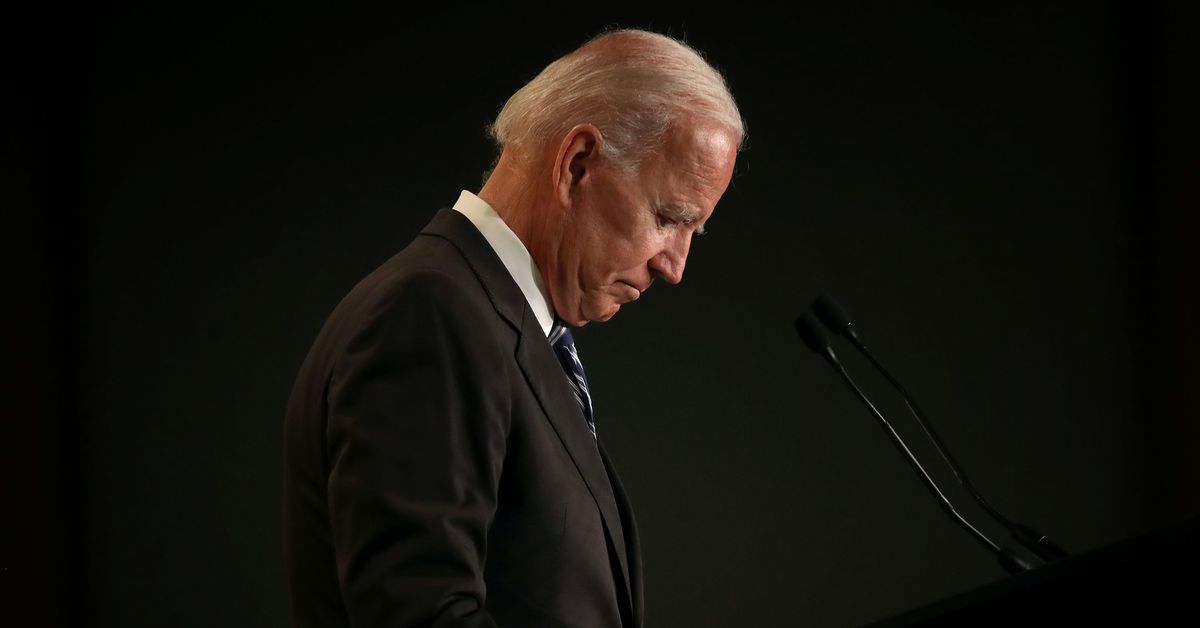I find this article to be hilarious...in sort of a bad way. This guy is defending going from Schedule I to III as if this is just fine. The fact is that it still will not allow banking services to the cannabis industry, will not allow interstate commerce of cannabis, and will not do a thing for people living in states that have not taken seperate action to legalize.
The fact is that despite overwhelming voter support for legalization our Federal politicians are just too chickenshit to actually take meaningful action.
And by the by, HHS, FDA, and DEA all work within the executive branch of which the chief executive is the President. To say that they DEA is "the decision maker" is like saying the fox gets to say if the hen house gets locked or not. Drug warrior action is the DEA's rice bowl and they will not give it up without firm direction, IMO.
Former top FDA official Howard Sklamberg doesn’t see how loosening federal restrictions will lead to a crackdown on state-legal markets.
President Joe Biden’s administration is poised to make the biggest shift in federal drug policy in decades by loosening marijuana restrictions, but the move is sparking blowback from an unlikely constituency: legalization advocates.
They argue that moving marijuana to a lower classification would do nothing to address the federal-state divide in marijuana laws, fail to address the impacts of criminalization, disrupt existing state-regulated cannabis markets, lead multi-billion-dollar pharmaceutical companies to dominate the medical cannabis industry and spur a potential federal crackdown.
Howard Sklamberg, an attorney and former top official at the FDA’s Center for Drug Evaluation and Research, argues those fears are alarmist and misguided. He doesn’t believe the cannabis industry needs to worry about a crackdown if the drug is moved from Schedule I to III under the Controlled Substances Act, as recommended by the Food and Drug Administration after a review of the scientific evidence.
“If you’re going to launch an enforcement initiative against cannabis, why would you start off with saying, ‘Oh, by the way, it’s less of a risk than we thought,’” Sklamberg said in an interview with POLITICO. “You would use your power under Schedule I and go after it.”
Sklamberg is now a partner at the law firm Arnold & Porter, but he held a variety of leadership roles at the FDA from 2010 to 2017, including stints overseeing compliance and enforcement operations. Sklamberg served as the FDA’s top official on a variety of issues, including cannabis.
Support for marijuana legalization cracked 70 percent for the first time last November since Gallup started asking the question in 1969. The results of the poll were announced the day after Ohio voters made the Buckeye state the 24th in the nation to legalize recreational weed. And 38 states regulate medical marijuana sales.
The Drug Enforcement Administration will have the final say on any change in marijuana’s federal classification. There’s no timeline for when the agency will announce that decision, but Sklamberg believes it’s likely in the first half of 2024.
“Agencies want to get their work done in an election year by the summer,” Sklamberg said. “The DEA could accomplish it by then.”
This interview has been edited for length and clarity.
Before we get into the details, could you just give an overview of what the rescheduling process looks like?
The first part of it has already happened, which is that FDA does a scientific and medical evaluation. They then make a recommendation to the Department of Health and Human Services. Assuming that HHS agrees with it, HHS then forwards that recommendation to the DEA, which is the decision maker for scheduling.
The media reports are that they’ve recommended rescheduling cannabis to Schedule III. DEA has to embark on a formal administrative process, which will allow for public comment and public hearing. DEA by statute has to defer to HHS and FDA on scientific and medical issues. So DEA is considering the broader policy and statutory framework, then finalizes its decision.
The decision then takes effect. People may challenge it in court.
When you say the DEA has to defer to HHS, does it mean that they have to accept the recommendation? Or could they go a different way?
They have to accept the scientific and medical basis of the recommendation. They could go a different way if they found another rationale that’s not scientific and medical. If FDA were evaluating the science of abuse potential and of the medical uses, DEA cannot say, “No, we have doctors who know better than you.” They can look at other factors, like policy issues.
DEA has never disagreed with an HHS recommendation. I think it’s unlikely they will do so here, though it’s certainly possible.
I’d like to get your take on some of the myths around rescheduling. So I will just put them to you one at a time: Moving marijuana to Schedule III would lead to a crackdown on state cannabis programs.
That would be a particularly illogical myth.
Whether cannabis is in Schedule I or Schedule III, both FDA and DEA would say that it would violate federal law to dispense it either in recreational form or in an unapproved drug. Even if it were unscheduled, FDA would say it would violate the Food, Drug and Cosmetic Act to have a medical cannabis program because drugs have to be approved by FDA after clinical trials, whether they’re controlled substances or not.
Administrations of both parties for many years have made a conscious decision not to take enforcement action against the cannabis industry.
If cannabis were rescheduled from Schedule I to Schedule III, that is a decision by the administration that cannabis is in fact less of a public health risk than people had thought. I find this [idea] very strange that enforcement would go up when the executive branch makes a decision that a substance is less dangerous.
The decision not to enforce is not one administrations made lightly. They considered a whole bunch of factors: the state oversight over programs, the public health risks, what FDA could do with its resources, and DEA could do, whether it would be effective.
The administrations as a whole probably thought of the politics of it and what the public wants. There’s been appropriations language for many years limiting the Justice Department’s ability to enforce against medical cannabis programs that comply with state law.
You put all this together — I find it to be a very strange and not understandable myth that enforcement would increase as cannabis is rescheduled from Schedule I to Schedule III.
What about the argument that if it is rescheduled to Schedule III that state marijuana programs are going to be subject to FDA regulations?
They are subject to FDA regulations now. The thing is, FDA chooses not to enforce them. Why would FDA all of a sudden want to enforce those when it hadn’t in the past under Schedule I?
Does FDA have the authority to do that? Yes. Does it make sense that they would do that? No.
Is it a resource issue?
FDA does not have resources for cannabis. If you want to actually have an enforcement program, you want to do something that has a real effect and isn’t just symbolic. And to do something that has real effect, you can’t just bring an enforcement action against one entity and leave a thousand others. You have to do it in a pretty big way.
Would someone want to be the FDA commissioner who, for example, wants to reduce the resources FDA is using to deal with smuggled fentanyl, counterfeit drugs, and divert that to cannabis? There are not many commissioners who’d want to make that decision.
If there were a new administration, and they wanted to take enforcement, it’d be more likely to come from the DEA. But they would face a similar problem: If you’re going to take merely symbolic enforcement action, you’re going to open yourself up to the criticism of favoritism and it being arbitrary, which is something agencies cannot do.
What do you make of the fears that rescheduling would mean that Big Pharma is going to swoop in and take over the cannabis industry?
I don’t know what the swooping would be. I doubt Big Pharma is going to all of a sudden start making edibles.
If you’re talking about conducting clinical trials and filing new drug applications for specific cannabis drugs, that is a lengthy and expensive process. Practically speaking, there would still be this medical cannabis industry. The approved drug would try to convince agencies to take action against some of the medical cannabis companies. But again, you have a resource problem.
If a drug company were to do that, the approved product would be covered by insurance and would have some other advantages. It might be a different form of cannabis. Changing the schedule from Schedule I to Schedule III — that doesn’t change the ability of any of this to happen.
Under Schedule I, you can do cannabis research, in fact, FDA encourages it. And economically, if it made sense for drug companies to do this, they would do it now. Changing it to Schedule III does not, in my view, change the fundamental calculus of that.
But would moving marijuana to Schedule III make research easier?
Depends on who you ask. There’s a bit of a debate on that. It can make it somewhat easier, but the fact is clinical trials are still expensive, even if you’re dealing with unscheduled [substances].
For it to make business sense, you’d have to have a company willing to invest, get the resources to do it. Spend the time doing this. And thinking, “Once we get this approved, we’re going to be able to have a monopoly enforced.” I don’t see that as likely.
What would be the benefits for the cannabis industry of Schedule III?
The biggest one is the tax change to section 280E of the tax code. When cannabis is under Schedule I, it does not allow the deduction of normal business expenses. Schedule III would allow that. That’s a very big change.
Otherwise, the change is largely symbolic.
If I were running a cannabis company, what would my ideal state be? Not Schedule III, or even just unscheduled. My ideal state would be comprehensive legislation — all the requirements for selling the products, for manufacturing the products, for adverse event reporting for registration.
Only through comprehensive legislation can you remove any gray zone and allow the industry to be normal. I don’t think that rescheduling is a substitute for comprehensive legislation. But if I were running a cannabis company, I would be pleased at rescheduling from Schedule I to Schedule III because of the tax implications. And because of the broader message it sends.
Does Schedule III have any impact on the criminal justice elements of federal cannabis enforcement?
It remains a violation of the Controlled Substances Act and a felony to distribute a controlled substance whether it’s Schedule I or Schedule III.
That’s a question of DOJ enforcement. The vast majority of cannabis criminal enforcement in the United States is done at the state level and the local level. Federal prosecutions involving cannabis are pretty rare. There is a misconception that the DEA and federal law enforcement are hanging out on street corners arresting people for cannabis distribution and cannabis use. And that is not how the federal government operates.
Would it actually be possible to deschedule through this process?
One could deschedule, but it is highly unlikely to happen at this point. Descheduling is a much bigger scientific and medical step, because it requires the determination that there’s no abuse potential, which is something that HHS and FDA, given the recommendation, were unwilling to do.
What do you think is a potential timeline for rescheduling?
My guess is that it will happen in the middle of next year. Agencies do not like to issue major policy changes in an election, or even or in a lame duck period, because it makes them more vulnerable to being repealed later.



